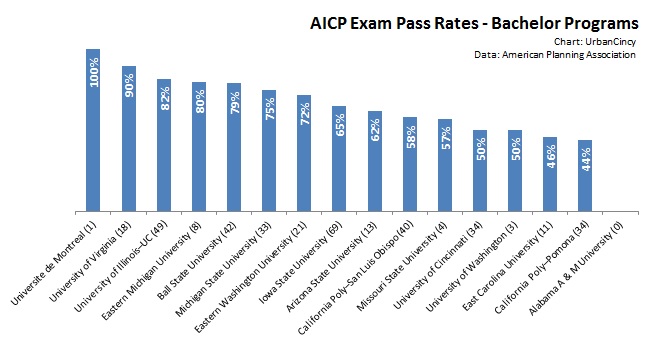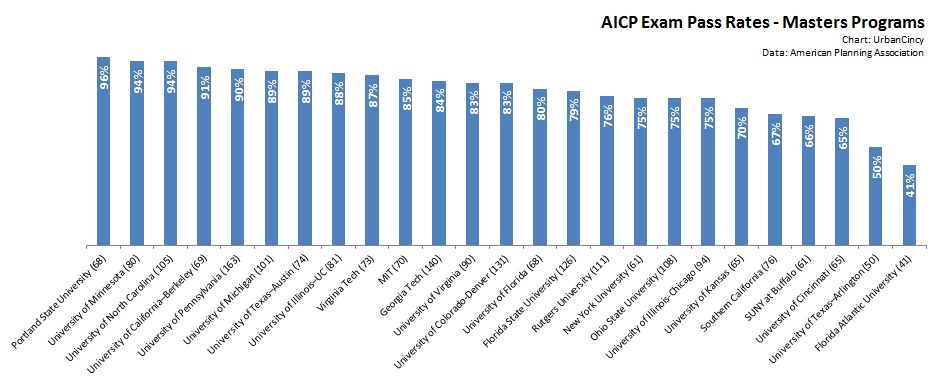The American Planning Association recently published their annual summary of AICP Exam pass rates of graduates from accredited planning programs, and both the University of Cincinnati’s masters and bachelors programs have once come in near the bottom of their respective quartile.
While some industry professionals believe the AICP credential no longer means what is used to, it is still, by and large, the distinguishing professional certification for professional planners.
The University of Cincinnati (UC) is one of just a select group of universities in North America with accredited masters and bachelors planning programs. Between 2004 and 2013, 65 out of 100 Master of Community Planning graduates passed the exam while 34 out of 68 Bachelor of Urban Planning graduates achieved a passing score. The total number of graduates taking the exam for both programs ranks them in the first and second quartiles respectively.
But while the overall number of planning students graduating from the University of Cincinnati’s planning programs is one of the highest in North America, their AICP Exam pass rates of 65% and 50% rank them near the bottom of their respective peers. These average scores also place both programs below the mean pass rate of 71% for accredited planning programs.
“The pass rates for both the MCP and BUP programs are very disappointing,” stated Dr. Danilo Palazzo, Director of UC’s School of Planning. “We have already met with the leadership from the Cincinnati section of APA Ohio and are devising a plan to make our students better aware of the topics covered by the AICP exam.”
One of the ways in which UC officials are hoping to improve this standing is by instituting a new course that would provide an AICP overview for those approaching graduation. The new course, however, does not yet have funding to support it twice per year as envisioned.
“I would like to believe that the pass rates are not a good reflection of the caliber of the professional planning education offered by our programs, though I will not make excuses. These low pass rates are unacceptable,” Dr. Palazzo emphasized. “We are very much open to the comments and suggestions from members of the AICP community, and would appreciate any actionable suggestions from your readers.”
Ohio State University’s Master of City and Regional Planning program, meanwhile, was the only other program in Ohio to be ranked. Its graduates passed the AICP Exam 75% of the time.
EDITORIAL NOTE: UrbanCincy’s owner and managing editor, Randy Simes, is a 2009 graduate of the UC’s Bachelor of Urban Planning program, and UrbanCincy’s local area manager, John Yung, is a 2013 graduate of UC’s Master of Community Planning program. Neither John nor Randy has applied to take the AICP exam.


